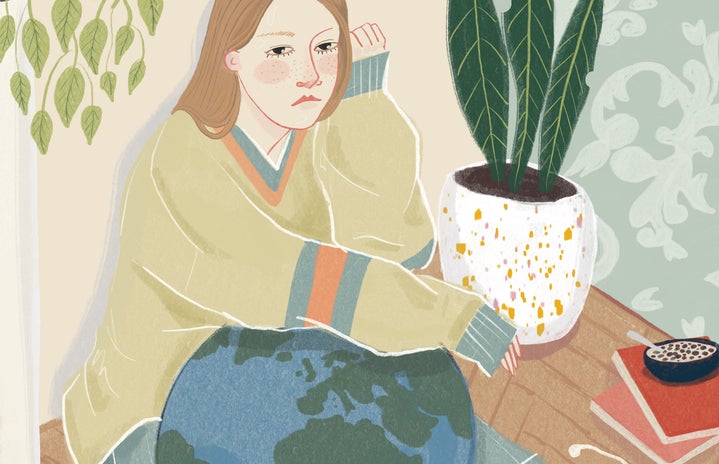On the night of March 3, 2021, 33-year-old Sarah Everard was murdered while walking at night in South London, during the first few days of Women’s History Month. Everard’s death has sparked global outrage and prompted conversations about violence against women. If you’re like me, you found out that, according to a study released by the UN on March 10, 97 percent of women in the UK experience sexual harassment in public between the ages of 18 to 24. If you’re like me, you expected to feel shock and outrage at that statistic, but instead we’re left with a feeling of numbness and emptiness.
I see women around me expressing their anger, especially through poignant Instagram stories that I find myself reposting out of habit and out of a need to feel like I’m saying something. But over the past two weeks, I’ve thought about a Sunday afternoon I spent with some of my university’s fraternity men two years ago.
In the Spring of 2019 I was a first-year student who had just completed my Speak UP training which prepared me to run workshops required for all first-year students that teaches how to recognize the signs of sexual assault and relationship violence and intervene. Speak UP was informed that a fraternity on campus was having a problem with sexual assault. That’s all I was told. I didn’t know if that meant they didn’t understand it, they had assaulters, or they told inappropriate jokes. The university’s way of dealing with this problem was to send me to give a presentation to these men.
The fraternity invited us (another female Speak UP peer and I) to their house and I set up in the room used for chapter meetings. I expected to run through our generic presentation. I expected them to nod and say buzzwords that they knew we wanted to hear, then I expected to leave. The presentation was interrupted with a dozen questions: why can’t I have sex with her if she’s drunk? Why should I believe a girl who makes accusations against one of my brothers? What if she’s lying? What if she’s acting like she wants it? We had dozens of eyes on us. The other Speak UP peer and I were the only women in the room. We had to speak for all women when we explained that assaulting women is wrong, explained that they are not entitled to women’s bodies.
When we were finally done with all their questions, and feeling like we had made no progress, we packed up to leave. On our way out, a few of the men we passed thanked us––but in lowered voices. Did they not want their brothers to hear them? I said you’re welcome, wondering if these guys couldn’t confidently thank us without worrying about what their brothers might think, would they ever step up when they saw their brothers being violent toward women? Would they say that a joke isn’t funny? Would they say something if they saw a brother slipping something into a woman’s drink? If they were leading an intoxicated girl upstairs? If they were stalking that girl from class? If they threatened her? Would anything ever be done if they couldn’t speak up?
It feels like I have been speaking up for so long that I don’t know what to say about Sarah Everard, except that I don’t think it’s shocking that she died during Women’s History Month; I think it’s quite fitting. It reminds me that women have no cover, no moment of peace. Everard did everything she was supposed to: she walked on busy and lit streets and she talked to her boyfriend on the phone. She was still murdered. It’s hard to feel the progress of Women’s History Month when we keep dying, and when I know there are men in the world who have come across their own Sarah Everards and didn’t have the courage to say anything.
Learn about ways to get involved through the National Domestic Violence Hotline.
Donate to the UN Trust Fund to End Violence Against Women.
Read Black Survivors and Sexual Trauma.
Donate to the TIME’S UP Foundation.



